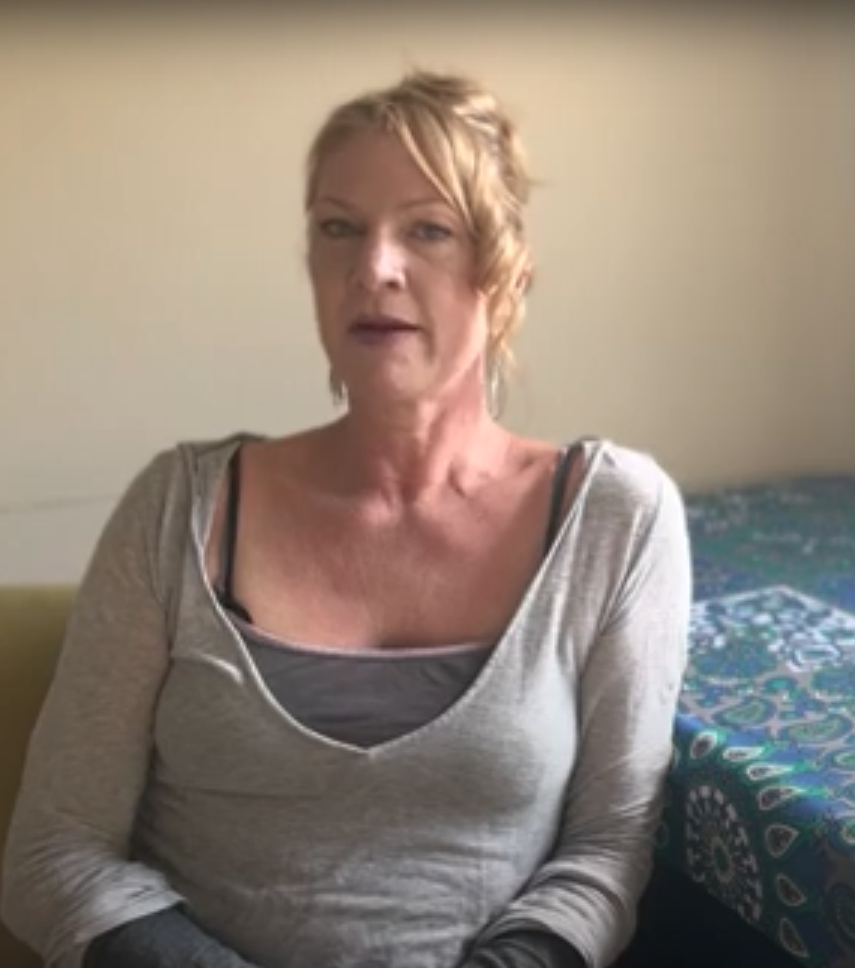Mishka is a peer Recovery Coach who works in the Emergency Department at the UVM Medical Center. Her work there involves connecting with patients who are experiencing substance use emergencies. She offers them compassionate, peer-to-peer support and follow-up services. In this video, Mishka tells the story of a woman who would not talk with the medical staff about her affliction, but opened up to her and took the first steps in her recovery journey.
[Transcript from the video] Hello, my name is Mishka Lord. I am a recovery coach for the emergency department working through Turning Point Center of Chittenden County. I have also been a client of Turning Point for over a year now. Turning Point was a integral part of my recovery then and continues to be part of my recovery now. In fact, I credit the work that I do here for helping me stay strong and sober and safe in my recovery.
When we are at the emergency department, we as recovery coaches are contacted by the nurses or doctors directly, asking us to come and speak to a client, a patient. When they have expressed a wish to seek recovery work, to seek rehabilitation, we facilitate their entry into detox, rehab, or sober living houses, and offer up as many resources as we possibly can.
One story that really struck me recently is beautiful in its own right and speaks to how much having a recovery support in the emergency department helps people choose to make the right choices moving forward. I was paged by a doctor. I called him. We spoke. He said he had a woman, older, who was denying that she was drinking even though her alcohol levels were through the roof when she came in. She continued to deny that she had any trouble with alcohol, and the doctor wished me luck and asked if I could see her. I went in to the patient’s bedside and sat down with her. She was a lovely older woman. I identified myself as Mishka, told her that I was a peer in recovery myself, and that I worked with Turning Point Center. She started to cry and she looked at me and she said, I know how to do the right thing, but I chose to drink instead, and I don’t wanna do that anymore. And I don’t know how to start.
She had been in recovery before. She had been in meetings. She knew, knew the verbiage, knew what the right choices were, but just needed someone to tell her it was okay that she had relapsed, that she’d had a REOC recurrence and that there was hope and that she could move forward from there. And after we spoke for a while, uh, we identified meetings that she could go to that she was comfortable with, that were close to her home. We identified people in the community that she could reach out.
We talked about the Turning Point Center and how there’s a meeting there every day at noon and she has started attending meetings. She is sober now, for a little over two weeks, and I’m hoping actually to see her tonight at a meeting.
I am lucky in that I choose to continue my sobriety and my recovery by attending meetings. It’s important to me, and I offer that to the people that I meet in the emergency department. I am happy to say that I had a beautiful young woman who I met in complete and total crisis in the emergency department. And a week ago, I handed her her three month chip and I will also see her tonight at another recovery meeting.
So it’s a beautiful connection. We connect with people in a way that doctors, nurses, and psych departments cannot because we have walked the road that they’re walking. We know what it feels like. We know what the bottom feels like. We know how hard it is to come up from there. But we also know that it’s possible. And they see that in us when we walk through the door. They see that in us when we hold their hand. They see that in us when we call them for days and days after meeting in the emergency department. And every single one of them always says, thank you so much for being there for us when we were at our worst.
So that’s why I do this.

